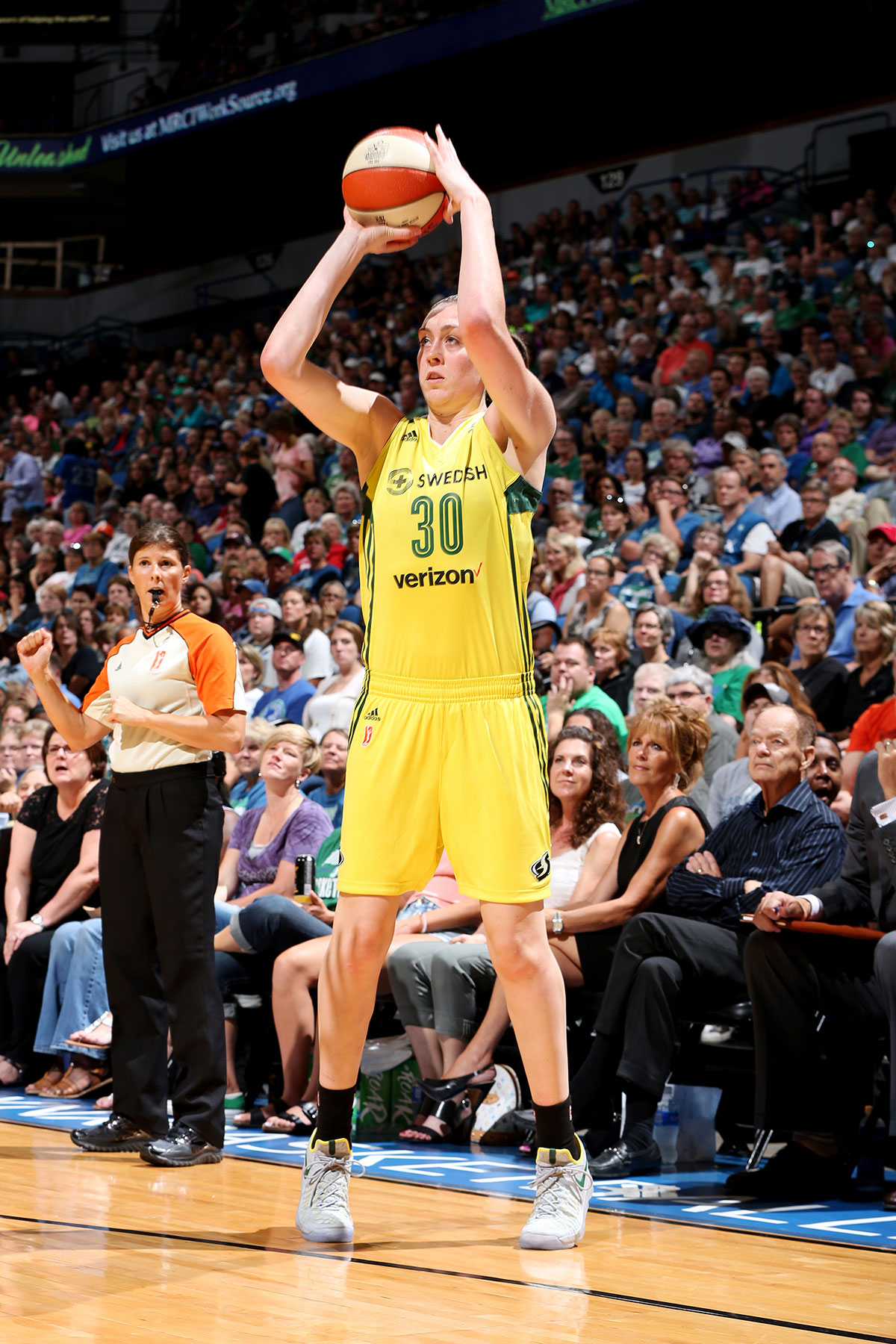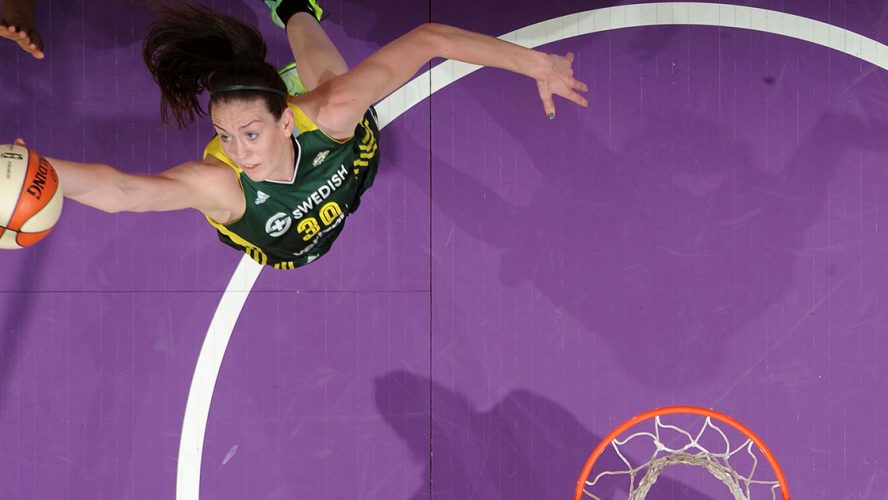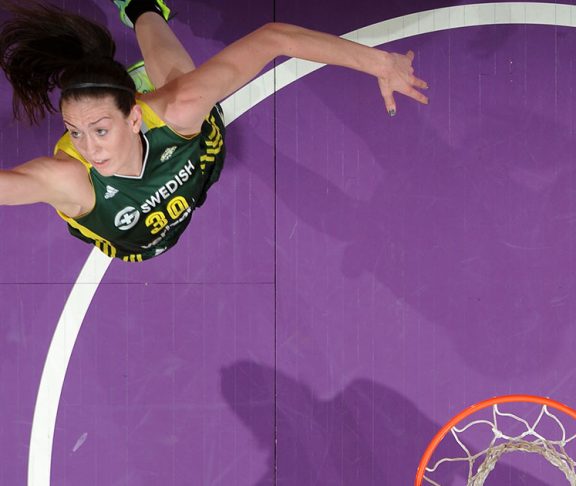“Where there is no struggle, there is no progress.” Frederick Douglass delivered these words in 1857 to a crowd in Canandaigua, New York. This mantra drives four-time national champion Breanna Stewart on and off the court.
“During my freshman year, midway through the season, I was struggling to play at the level I wanted to,” she recalls. “I found that the only way I was going to get better was if I embraced the struggle and turned it into motivation to get on the court when others weren’t.”
An academic athlete
In a very short period of time, Breanna has solidified her place in the NCAA tournament record books, ranking third all-time in points (446), third in rebounds (207), and second in blocks (71). She credits her epoch-making success to a challenging four years of studying both in the library and on the court at the University of Connecticut. “When things get hard it’s about how you react to them and that’s the best way to learn how strong you are and how much adversity you can handle.”

Being a student athlete comes with its perks — free clothes, traveling to competitions and access to scholarships. That’s not to suggest it’s an easy task, however. “It took some great time management skills to make sure what I did in the classroom was the same level as on the court,” she recalls. “Our academic advisor, Ellen Tripp, was always there to help us get organized, stay on track and make sure we met with tutors every week.”
Building Support
Student athletes are equipped with a variety of resources, including access to personal academic support, quality medical care and top-notch facilities and equipment. Further, recent studies suggest that student athletes tend to graduate at higher rates than their peers in the general student body and feel better prepared for life after college. Stewart’s advice for the future student athlete?
“Advice that I would give to students heading to college, whether you play a sport or not, is to have a solid group of people around you who are going to help you,” she says. “College is hard, and you need people to be there to support you when things get tough.”
This fall, millions of young men and women will take their first steps on a college campus. Stewart advises students to make the most of their experience. “Enjoy it. Four years goes by too quick, and you can’t get that time or those experiences back.”
Staff, [email protected]

